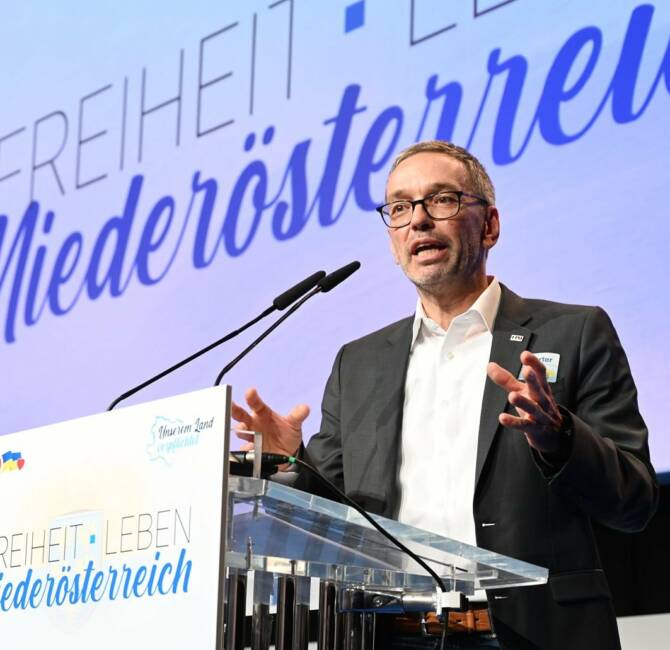Hungary – Conservative Prime Minister Viktor Orbán is known for his anti-immigration rhetoric, and less for his natalist position. But these two go hand in hand.
“[…] there are two distinct views in Europe today to consider [the decline and aging of our population]. One of these is held by those who want to address Europe’s demographic problems through immigration. And there is another view, held by Central Europe – and, within it, Hungary. Our view is that we must solve our demographic problems by relying on our own resources and mobilising our own reserves, and – let us acknowledge it – by renewing ourselves spiritually.”
It is in these terms that Viktor Orbán once again put forward a deep dichotomy within the European Union at the 2nd Demographic Forum of the Budapest Family Summit held at the end of May. For the strong man of Hungary, the refusal of immigration goes hand in hand with a natalist policy.
Immigration as a Trojan horse of terrorism
Starting his speech by describing the terrorist threat posed by immigration, Viktor Orbán also recalled that immigration changed the nature and quality of life of the peoples of Europe and thus represented a risk even for the competitiveness of the countries of Europe.
The Hungarian Prime Minister made himself known worldwide during his opposition to Brussels and Berlin on the migration issue in 2015 by erecting a fence on the southern border of Hungary – and of Schengen – with Serbia. Viktor Orbán has since said that he was ready to do anything to “protect the young ones and the families”, including building a wall instead of the fence, should that become necessary. For him, “Brussels is on the side of terrorists”, and immigration is out of the question: according to the Prime Minister, the Hungarians want “a Hungarian Hungary and a European Europe”.
Target 2030: increase the birth rate from 1.5 to 2.1
The Hungarian Prime Minister aims to drastically “reverse the trend”. In order to do so, the Hungarian government is implementing additional measures to the ones already undertaken in 2015 – the CSOK program in particular which gives State grants for the purchase or development of new or renewable real estate by families with more than two children. It is also interesting to note that the government already spends 5% of Hungarian GDP on families.
The new measures announced are:
* For indebted families, the government pays a sum of one million forints (around € 3,300) per child as of the third
* Construction and renovation of nurseries so that all families have access to them
* 50% repayment by the State of the student loan for women with their second child, and 100% from the third child
* Additional tax reduction for families with more than two children
At the same time, Viktor Orbán also announced that GDP growth would be between 3 and 5% this year and that unemployment was about to be resolved. These conditions are, for the head of the Hungarian government, essential for fostering population growth.
Marriages in Hungary have also increased by 40% since 2010, according to Fidesz MP Mariusz Révész.
Stop the bleeding out
If these measures appear strong – and they are – it is because the situation is catastrophic. Viktor Orbán does not hide it, however. “In less than forty years, we will lose a million inhabitants, which is more than the losses we endured during the Second World War.”
The emigration of Hungarians – especially to Western Europe – is also an important factor in depopulation. 37% of young people plan to leave Hungary, at least temporarily.
The low rate of marriages, abortion, the gradual loss of the will – due to individualism but also much to lack of means – to fund a home are major factors of demographic decline. Although, the hopes of the Prime Minister are not futile since in Hungary statistics show that if the fertility rate is 1.5, the average number of desired children is almost 2.
The urgency is therefore indisputable. And the Hungarian government is paving the way for an era of important and non-partisan policy. It is unlikely that Viktor Orbán will reap himself the fruits of his natalist policy because he will probably no longer be a candidate for an election in the 2030s …
The “illiberal” turn of Hungary takes on its full meaning
The organization and support of the World Congress of Families, as well as the intervention of Viktor Orbán himself, is a strong symbol. Hungary is now part of an illiberal line, but it is still an ordinary European country regarding abortion and “women’s rights”. It should be noted, however, that Hungary has already stopped renewing aids granted to clinics practicing abortion.
During this Congress, liberalism got targeted, as did the UN,abortions and the promotion of women’s rights opposed to Human rights. For the liberal-libertarian opposition, government support for this Congress, and the place given to religion in the debate around the notion of family, are strong gestures that cause fear for a decline of the influence of LGBT lobbies.



